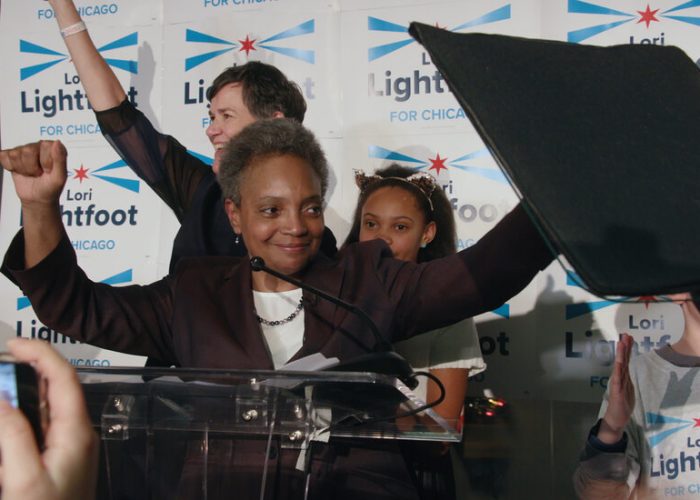But the real subjects of City So Real (a title borrowed from an Alex Kotlowitz book that itself paraphrases a Nelson Algren line) are Chicagos neighborhoods and people. Each segment begins with the neighborhood identified on a city map, a helpful guide to the outsider but also a thematic statement. Chicago, as the series finds it, is a confederation of enclaves, distinguished by economics, ethnicity and culture.
And the campaign, in the cameras eye, plays out not just in debate halls but in laundromats and barbershops. Its an extension of the battles and worries of life. We visit anti-gentrification protests, then hear Arturo Garza, a developer and landlord in the Pilsen neighborhood, dismiss people salty about money coming into their neighborhoods. Hey, you rented, he says. You didnt buy. You had a chance. Guess what? You gotta leave now.
Politics is not an abstraction for City So Real; its about where and how you live.
The program has a particular taste for the ground-level, person-to-person, sweat-and-blood dimension of the election. It spends a long time on the ballot qualification stage, where signature challengers get angry and level personal insults ambulance chaser, snake. Its dramatic, but it also represents the films worldview: Every ballot, every name on a petition, is a little war.
The eventual winner, Lori Lightfoot (the citys first openly gay mayor and its first Black female mayor), gets relatively little attention early on; the series seems to discover her as the electorate does. With a late surge, she places first in the primary, then easily wins the runoff, which the series dispenses with quickly.
And there the story might have ended, except that 2020 happened. City So Real screened at film festivals as a four-part series. James went back this year to add a final episode that picks up in March, as the pandemic strikes the city.read more
‘City So Real’ Is an Election Story Pulsing With Life


